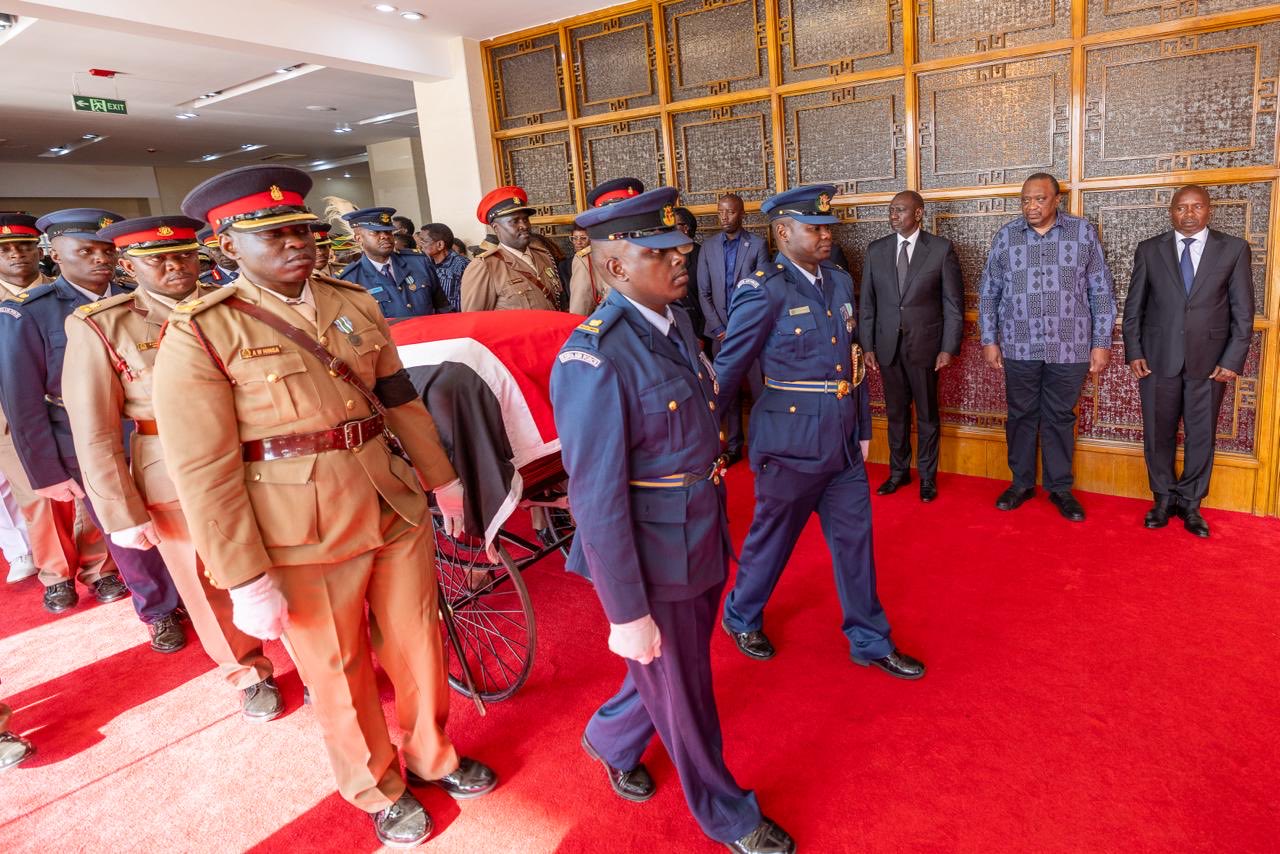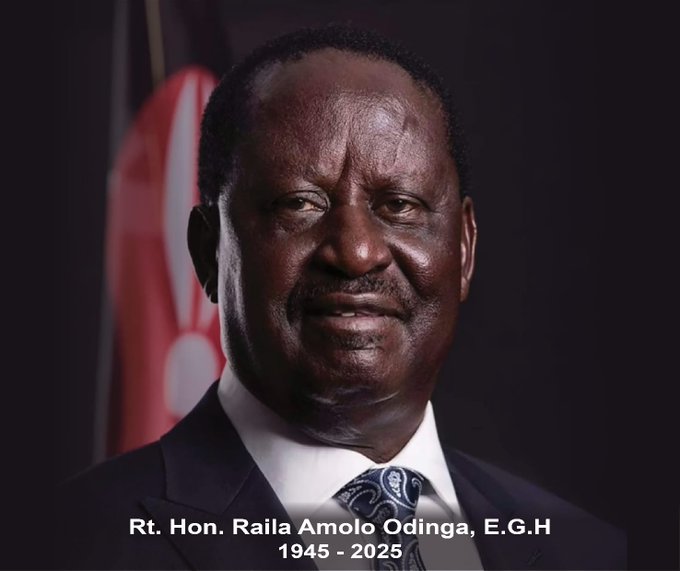Kenya is mourning the death of Raila Odinga, the country’s long-serving opposition leader and democracy champion, who passed away in India at the age of 80 while undergoing treatment for an undisclosed illness.
His death closes a monumental chapter in Kenya’s political history, marking the departure of a man whose name became synonymous with reform, defiance, and unwavering belief in justice.
Odinga’s political life was a long and tumultuous journey filled with victories, betrayals, and relentless pursuit of change. For over four decades, he remained a central figure in shaping Kenya’s democracy, inspiring a movement of loyal supporters who affectionately called him “Baba.”
His rise to prominence began under an oppressive one-party regime, where he endured years of detention for demanding freedom and fair governance.
Although he never captured the presidency despite five attempts, Odinga’s influence cut across generations and shaped nearly every major political event in Kenya’s modern history.
 The body of the late Prime Minister Raila Odinga is wheeled by military officers at Kasarani ready for public viewing on October 16, 2025.PHOTO/PCS
The body of the late Prime Minister Raila Odinga is wheeled by military officers at Kasarani ready for public viewing on October 16, 2025.PHOTO/PCSFrom street protests to statehouse negotiations, his voice was impossible to ignore. Even those who opposed him acknowledged his unmatched ability to mobilize crowds and steer national debate.
Born into a politically active family, Raila followed in the footsteps of his father, Jaramogi Oginga Odinga, Kenya’s first vice-president who broke ranks with founding president Jomo Kenyatta over ideology.
Like his father, he never rose to the highest office, yet he became the country’s most enduring symbol of opposition politics.
His years of detention under President Daniel arap Moi transformed him from a rebellious activist into a national figure. He was first jailed between 1982 and 1988, and again from 1989 to 1991, accused of supporting a failed coup attempt.
Those experiences would define his political character – fearless, persuasive, and unyielding in his fight for democratic space.
In 2007, Odinga’s disputed election battle with Mwai Kibaki plunged Kenya into post-election violence that claimed more than 1,200 lives and displaced thousands.
His subsequent appointment as prime minister in a coalition government marked his closest brush with power, but constant wrangles over authority weakened the partnership.
In 2017, his rivalry with Uhuru Kenyatta took centre stage after the Supreme Court annulled Kenyatta’s victory due to irregularities exposed by Odinga’s legal challenge.
Though he boycotted the repeat poll, the two leaders later surprised the nation with their 2018 “handshake”, a truce that redefined Kenya’s political alliances and laid the groundwork for cooperation between former foes.
Odinga’s final presidential attempt came in 2022, when he teamed up with Martha Karua, Kenya’s first female running mate to a major contender. He lost to William Ruto, closing a long career marked by both triumphs and heartbreaks.
Even after that loss, Odinga retained relevance, as seen when Ruto reached out to him last year to form a “broad-based” government that included members of Odinga’s ODM party.
However, the move angered many young activists who had protested against Ruto’s administration, accusing Odinga of abandoning the struggle. He defended his decision, saying he had only “donated” experts to help the president “save the country.”
Beyond politics, Odinga’s charisma and easy connection with ordinary people made him a cultural icon. His love for reggae music, his lively dance moves at rallies, and his famous nicknames — “Agwambo” and “Tinga” — turned him into a folk hero. An Arsenal football supporter, he enjoyed working out and taking long walks both in Nairobi and his Siaya village.
Internationally, Odinga was recognized as a pan-Africanist who stood for African unity and development. Between 2018 and 2023, he served as the African Union High Representative for Infrastructure Development, where he pushed for stronger continental integration.
He also took on mediation roles, including in Ivory Coast during its post-election crisis, though not all his efforts bore fruit.
Odinga was born on 7 January 1945 in Maseno, Kisumu County, and studied mechanical engineering in East Germany, where he earned a master’s degree in 1970. He was married to Ida Odinga, and together they raised four children, the late Fidel, Rosemary, Raila Junior, and Winnie. He once said Fidel’s name was inspired by Cuban leader Fidel Castro, whom he admired for standing up to the United States during the Vietnam War.
Despite his complex relationship with the West, Odinga consistently advocated for democratic ideals and accountability in governance. His passing leaves Kenya without one of its boldest voices — a man whose fight for freedom, equality, and dignity shaped the nation’s democratic journey for more than half a century.
